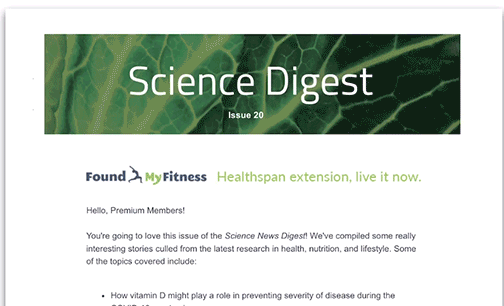Is Nicotine a Safe Cognitive Enhancer?
The Omega-3 Supplementation Guide
A blueprint for choosing the right fish oil supplement — filled with specific recommendations, guidelines for interpreting testing data, and dosage protocols.
In this video, Rhonda Patrick discusses:
• The narrow sweet spot for the cognitive benefits of nicotine • The addictive properties of nicotine • Why long-term nicotine use may harm cardiovascular health • If nicotine increases cancer risk • The appetite suppressant effects of nicotine • How chronic nicotine use rewires dopaminergic pathways • How nicotine affects sleep quality • Alternatives to nicotine for improving cognition
Get email updates with the latest curated healthspan research
Support our work

Every other week premium members receive a special edition newsletter that summarizes all of the latest healthspan research.
Brain News
- Intense exercise may alter how hormone signals are transported to the brain.
- Volunteering and everyday helping are linked to better cognitive health in older adults.
- Anxiety disorders share a brain signature of reduced cortical choline levels.
- Higher blood carotenoid levels are linked to slower cognitive decline in older adults carrying the APOE ε4 Alzheimer risk allele.
- 5,000 to 7,500 steps a day may slow early Alzheimer's disease‑related changes in at‑risk older adults.




